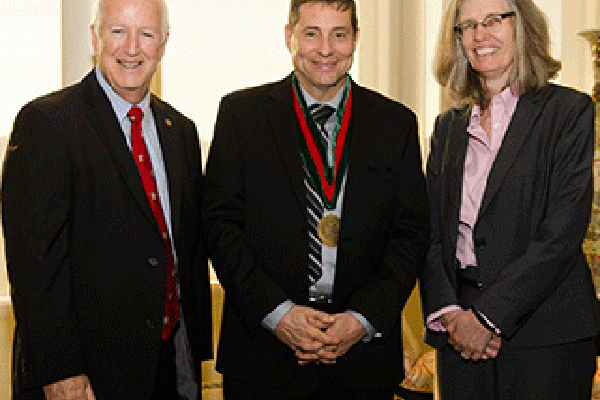Study asks whether healthy diet or weight loss makes you live longer
Researchers at Washington University School of Medicine in St. Louis are recruiting volunteers for a study comparing the potential health and longevity benefits of the Mediterranean diet with those of a typical American diet. The study’s aim is to determine whether health and longevity are influenced more by healthy eating or by weight loss.
Drastically cutting calories lowers some risk factors for age-related diseases
The largest study to date of sustained calorie reduction in adults shows that it does not produce all of the metabolic effects associated with longevity that have been found in animal studies. Severely cutting calorie intake, however, did appear to lower the risk of cardiovascular disease and make people more sensitive to insulin, according to John O. Holloszy, MD, principal investigator at the study’s Washington University clinical site.
Carr becomes first Wolff professor of geriatric medicine
David B. Carr, MD, has been named the inaugural Alan A. and Edith L. Wolff Professor of Geriatric Medicine at the School of Medicine. He is pictured at his installation with Larry J. Shapiro, MD, dean of the School of Medicine, and Victoria J. Fraser, MD, head of the Department of Medicine.
Calorie-restricted diet keeps heart young
People who restrict their caloric intake in an effort to live longer have hearts that function more like those in people who are 20 years younger. Researchers at Washington University School of Medicine in St. Louis have found that a key measure of the heart’s ability to adapt to physical activity, stress and other factors, doesn’t decline nearly as rapidly in people who have significantly restricted their caloric intake.
Seven-point system gauges seriousness of heart failure in elderly
A simple points system may soon help guide treatment of elderly heart failure patients. Researchers at the School of Medicine found that by counting how many of seven easy-to-obtain health factors a patient has, physicians can estimate the patient’s risk of dying.
Seven-point system gauges seriousness of heart failure in elderly
A simple points system may soon help guide treatment of elderly heart failure patients. Researchers at Washington University School of Medicine in St. Louis found that by counting how many of seven easy-to-obtain health factors a patient has, physicians can estimate the patient’s risk of dying.


